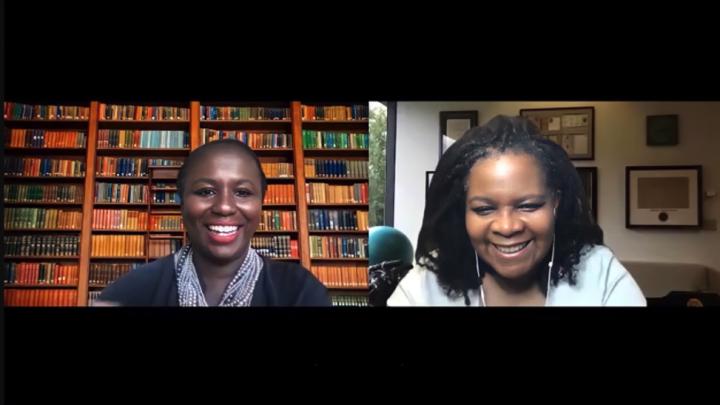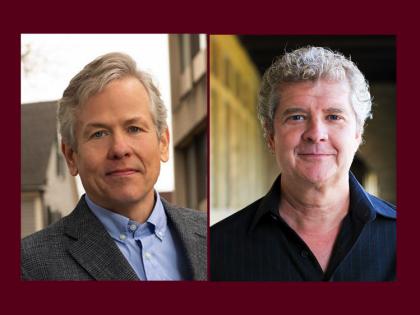When Annette Gordon-Reed sat down to compose what would become her recent book On Juneteenth, the Loeb University Professor and Pulitzer-winning historian felt her customary academic detachment fall away. Writing about a holiday first celebrated in her home state of Texas, and created to commemorate African Americans’ emancipation from slavery after the Civil War—“a human-rights victory, really,” she called it during a talk Monday evening—something shifted for Gordon-Reed, who grew up during the still-segregated 1960s (and as a first-grader, integrated her small town’s formerly white elementary school). In the book, she found herself opening up to personal reflections, family history, and stories of home.
“In so many ways this book is about memory, but it's also about re-remembering, it's about dis-remembering things, and the way that we recall them,” said Sherri Ann Charleston, Harvard’s chief diversity and inclusion officer (and herself an historian and lawyer), during the discussion with Gordon-Reed, which began a weeklong series of Harvard events commemorating Juneteenth, declared a University holiday last year.
Their conversation ranged widely, from contemporary politics and proper barbecue technique to Gordon-Reed’s childhood memories and the “echoes” of history that still constrain the present. She recalled a story her grandfather used to tell, about Bob White, a black man accused of raping a white woman in Gordon-Reed’s hometown. He was beaten by Texas Rangers until he confessed, and later, shot and killed in the courtroom by the white woman’s husband, who was swiftly acquitted of murder. “We're not far away from all this kind of stuff,” Gordon-Reed said. “What happened to Bob White was a product of slavery, which created a racial hierarchy…and you just can't get rid of that. The law may change, even, but the customs and the traditions, the cultural memories still remain, and it's something to be worked out. We have to face it and really talk about and try to exorcise it to the extent that we can.”
She noted the reluctance of some historians to confront and acknowledge uncomfortable realities, and drew a connection between that tendency and the recent backlash against critical race theory and the surge of legislative efforts in some states to ban teaching about racial history or racism. One thing she noticed again and again when working on Thomas Jefferson and Sally Hemings: An American Controversy, the groundbreaking 1997 book that first established the sexual relationship between Jefferson and Hemings and won Gordon-Reed the Pulitzer Prize, “was the way that mainstream, mainly white historians, wrote about Thomas Jefferson and Sally Hemings, and that their use of evidence was essentially skipping over reasonable inferences”—that Jefferson was the father of Hemings’s children—“until they got to something that was comforting to them.” An understandable tendency, and one not limited to history, Gordon-Reed said—but an unhelpful one.
“By looking at the past, not through the lens of what we want it to be but through the way it is,” she said, “that's the only way we have any hope of improving ourselves, of getting ourselves out of the predicament we're in, understanding the nature of it. Hiding that, which is what I gather some of these legislative initiatives are trying to do, it's just a recipe for ignorance. It's a recipe for delaying the time when we can actually begin to work on and solve the problems that we have.”








